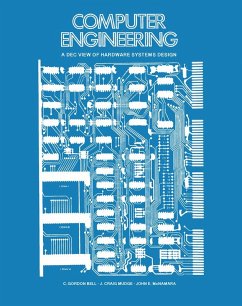Computer Engineering: A DEC View of Hardware Systems Design focuses on the principles, progress, and concepts in the design of hardware systems.
The selection first elaborates on the seven views of computer systems, technology progress in logic and memories, and packaging and manufacturing. Concerns cover power supplies, DEC computer packaging generations, general packaging, semiconductor logic technology, memory technology, measuring (and creating) technology progress, structural levels of a computer system, and packaging levels-of -integration. The manuscript then examines transistor circuitry in the Lincoln TX-2, digital modules, PDP-1 and other 18-bit computers, PDP-8 and other 12-bit computers, and structural levels of the PDP-8.
The text takes a look at cache memories for PDP-11 family computers, buses, DEC LSI-11, and design decisions for the PDP-11/60 mid-range minicomputer. Topics include reliability and maintainability, price/performance balance, advances in memory technology, synchronization of data transfers, error control strategies, PDP-11/45, PDP-11/20, and cache organization.
The selection is a fine reference for practicing computer designers, users, programmers, designers of peripherals and memories, and students of computer engineering and computer science.
The selection first elaborates on the seven views of computer systems, technology progress in logic and memories, and packaging and manufacturing. Concerns cover power supplies, DEC computer packaging generations, general packaging, semiconductor logic technology, memory technology, measuring (and creating) technology progress, structural levels of a computer system, and packaging levels-of -integration. The manuscript then examines transistor circuitry in the Lincoln TX-2, digital modules, PDP-1 and other 18-bit computers, PDP-8 and other 12-bit computers, and structural levels of the PDP-8.
The text takes a look at cache memories for PDP-11 family computers, buses, DEC LSI-11, and design decisions for the PDP-11/60 mid-range minicomputer. Topics include reliability and maintainability, price/performance balance, advances in memory technology, synchronization of data transfers, error control strategies, PDP-11/45, PDP-11/20, and cache organization.
The selection is a fine reference for practicing computer designers, users, programmers, designers of peripherals and memories, and students of computer engineering and computer science.
Dieser Download kann aus rechtlichen Gründen nur mit Rechnungsadresse in A, B, BG, CY, CZ, D, DK, EW, E, FIN, F, GR, HR, H, IRL, I, LT, L, LR, M, NL, PL, P, R, S, SLO, SK ausgeliefert werden.









